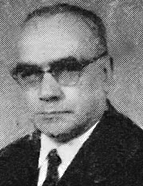

In a country with a limited market, it is reasonable to assume that the emergence of works in the same field posed an additional obstacle to the continuation of a project of such scope and ambition. For instance, in 1955, História da Literatura Portuguesa [History of Portuguese Literature] by Óscar Lopes and António José Saraiva was published. Although initially intended for secondary education (competing directly with similar works), over time, its more interpretative nature also won favour among university students, securing a dominant position in the publishing market.
CP’s name is usually associated with the editions he prepared and the aforementioned História da Literatura Portuguesa da época medieval [History of Portuguese Literature of the Medieval Period], which, in many respects, remains unsurpassed to this day. It would, however, be unfair not to mention a third aspect of his work: his contributions as a literary critic. In this regard, two substantial volumes deserve particular attention: Gente Grada [Distinguished People] and Escritos Diversos [Miscellaneous Writings], published in 1952 and 1972, respectively. The latter, a collection from the final phase of his career, opens with a Preface that encapsulates CP’s stance on literary studies as practised at the time: " Considered in various ways, depending on the audience they were intended for, the people who prompted them, or the circumstances that motivated them, all these writings share a common feature: the love of truth. I have always written to discover how things truly happened—and not how they were imagined by hasty essayists or less scrupulous individuals " (p. V). In proclaiming his positivist convictions, reflected in the desire to “ discover how things truly happened,” CP distanced himself not only from the so-called “less scrupulous” but also from the essayism that competed with literary history in academic circles, often marked by its neglect of scholarly foundations. In the first section of this collection, titled “Temas de controvérsia” [ " Themes of Controversy " ], the historian takes a clear stance on contentious issues such as the authorship of two plays attributed to Gil Vicente, the potential discovery of Fernão Lopes’s “lost chronicles,” and whether or not Camões had directly read Plato.
This work is financed by national funds through FCT - Foundation for Science and Technology, I.P, in the scope of the projects UIDB/04311/2020 and UIDP/04311/2020.
